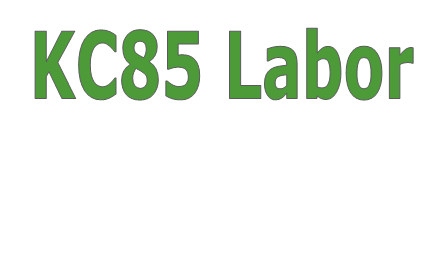- Details
- Geschrieben von Super User
- Hauptkategorie: Magazines
- Kategorie: CFOG's PIP
- Veröffentlicht: 30. November 1987
- Zugriffe: 25018
CFOG's PIP, May 1988, Volume 7 No. 3, Whole No. 65, page 39
DOS DOINGS
by Steve Lucius
Does software bloom more in the Spring? Several major software vendors have announced updates of their products. Ashton Tate has announced dBase IV with full SQL support, which should put them back into the competition as a leading edge data base vendor. Micropro has announced Wordstar 5 for DOS with a May ship date, however if you call to order it they say not until July. Wordperfect is expected anytime (scheduled release was April) to release version 5.0 of their word processing package. Lotus on the other hand used Spring as a time to announce that their planned release of Lotus 3 had been postponed for 6 months.
AST has released a new driver for their EEMS products such as the Six Pack Premium and Rampage. They also released a new driver for the clock in the Six Pack products. There was no documentation on their board for the clock, however the EEMS driver now allows AST products to support the new LIM 4 standard for expanded memory announced by Intel. The driver can be obtained for $10 by calling the AST tech support number (714-553-0340), dialing into CFOG 2 (filename is REMM40.SQS) or visiting a meeting and getting it from the DOS library. The AST support BBS has several files relating to whether or not one of their products is compatible with a given PC clone and can be reached at 714--852--1872.
CFOG's MS-DOS Library
The CFOG MSDOS library at present has 46 disks and will add at least 2 during May. There is a listing of the library on the BBS under the filename of CFOGLIB which is updated monthly.
Word Processors in the Library
The latest addition to it will be NYWORD (a word processing package), more artificial intelligence software, and PC Magazine's benchmark series of tests for PCs.
Speaking of word processing programs, if you are looking for a source for VDE version 1.2 it was in the library for last meeting, as well as on the RCPM.
Another useful word processing package in the library is Galaxy, which has a command structure that looks like Wordstar but can also be run from function keys or pull down windows. Like VDE version 1.2, it also supports windows which can be very convenient for writing a column in window 2 while you look at your notes in window 1, or writing a program in the second window while your use the first to look through similar programs you have written to find known working code modules to incorporate and move into the one you are writing.
More Library News
Another useful program in the library is DUPDSK. For 360k disks it allows speeded up mass duplications by reading the master disk into memory and them dumping it to blank disks in both A and B disk drives without rereading the master. It also formats blank disks. DUPDSK is menu driven.
A program that looked good but didn't make it into the library was NARC2O, a menu driven archive program. It worked fine for small files, but locked up the computer on anything over about 30k. Since ARC and PKARC work on files up to at least 3 meg, the biggest one I have tried, that puts NARC at an extreme disadvantage. The documentation contains a good discussion of the whole subject of archiving, however at least on my machine it won't handle anything but small files.
New XT Chips
Due to the tariff on Japanese computers and chips the price of memory chips remains high. Since the tariff on AT compatibles is higher than XT compatibles the Japanese are introducing some very powerful XT class computers. They are using some of the newer Intel and NEC microprocessors such as the Intel 8088-1 (NEC V20--10), and the Intel 80186 (NEC V-40). Both of these are hytrid 8/16 bit microprocessors and take clock speeds as high as 10 MHZ, producing some very fast computers. I have seen Norton sysinfo ratings for them as high as 3.9. (On this scale an original XT is 1 and the original 6 MHZ AT is about 6.) The Intel versions of these chips approach the speed of an 8086 which as a 16 bit chip gets a higher tariff, so isn't used. The NEC V30 is also faster, but is also a 16 bit chip.
With the addition of these the microprocessors available for PC clones has grown. They are listed below in order of speed.
16 BIT Intel 80386 16 and 20 MHz clocks NEC V50 Almost never seen Intel 80286 6, 8, 10, 12, 16 MHz NEC V30 4.77 and 8 MHz Intel 8086 4.77 and 8 MHz
8/16 BIT NEC V40/Intel 80186 8 or 10 MHz NEC V20-10/Intel 8088-1 10 MHz NEC V20-8/Intel 8088-2 8 MHz NEC V20/Intel 8088 4.77 MHz
Another factor complicating buying a new PC is that with the release of Norton Utilities 4.0 a new Norton speed index was released. The Norton version 3 index (SYSINFO) checked only processor speed. The new one (SI) consists of CI (a processor and memory speed index) and DI (a disk speed index). Of the 3 machines I have checked the old SYSINFO and the new CI agree within a margin of one tenth. I have seen at least one vendor multiply the standard clock speed of 4.77 MHz times the CI index for a V-20 chip of about 3.2 and claim that the machine had a CI index of 15 MHz which is pretty bad advertising as there are no units on the CI index. Read computer ads very carefully: if it looks too good to be true it probabiy is.




